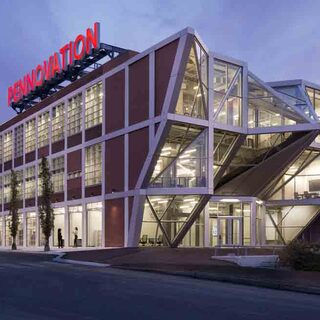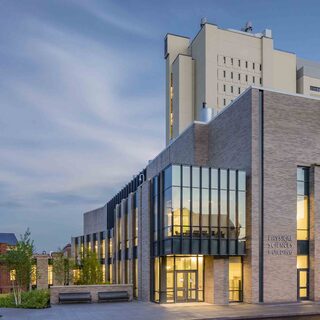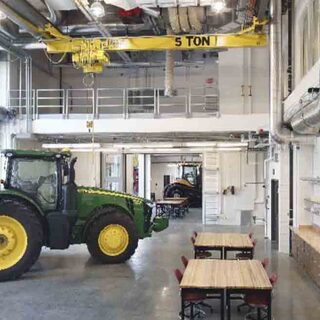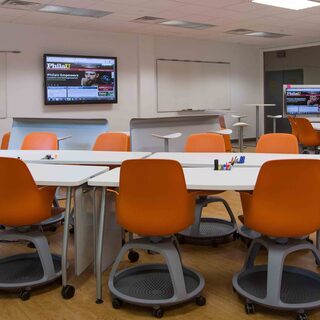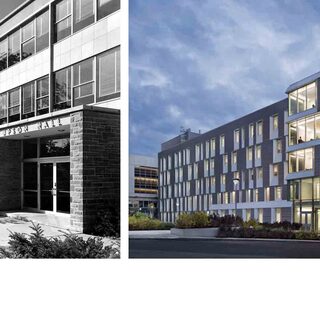Tradeline's industry reports are a must-read resource for those involved in facilities planning and management. Reports include management case studies, current and in-depth project profiles, and editorials on the latest facilities management issues.
Latest Reports
Innovation Hubs and Incubators Drive Academic Research to Commercialization
Innovation hubs and incubators are emerging as the best solution to help universities, entrepreneurs, researchers, and students transform their creative ideas into viable commercial ventures. Users want facilities that focus on entrepreneurship, creativity, and innovation; foster interdisciplinary collaboration and partnerships; offer responsive and flexible spaces; create a spirit of ground-up innovation; support commercialization of ideas/products; and connect to nearby universities, companies, and amenities.
Physical Sciences Building
The Physical Sciences Building (PSB) is a new research laboratory for the University of Massachusetts Amherst. The 95,000-gsf facility supports scientific discovery in the fields of materials science, condensed matter and nuclear physics, and organic and inorganic chemistry. It contains state-of-the-art high bay physics research labs, synthetic chemistry research labs, extensive core support labs, offices, student work areas, and collaboration space. Housing 20 faculty-led research groups with a total of 130 bench positions, the PSB is a pivotal part of the school’s Comprehensive Science and Engineering Master Plan.
New University STEM Facilities Planned with Industry Partnerships in Mind
Universities and businesses have worked together for decades. Today, changes in funding and in STEM career paths have made those partnerships more attractive than ever—so attractive, in fact, that many institutions are planning new spaces specifically for them. With limits on government funding in recent years, and state and local funding stagnant, many institutions are seeing 25 to 30 percent of their research funding coming from outside sources, primarily private industry. That has led to more elaborate and specific consideration of industry partnerships as a part of strategic planning.
Creating a Culture of Learning
Active learning, collaborative spaces, real-world connections, a purposeful focus on “soft skills,” and a grounding in liberal arts and sciences all combine in Jefferson’s Nexus Learning approach to develop and support work-ready graduates. “Nexus Learning is based on a suite of strategies that ensures our graduates are prepared to succeed in their professions or graduate school,” says Jeffrey Ashley, PhD, chemistry professor and director of the Center for Teaching Innovation and Nexus Learning at Jefferson (Philadelphia University + Thomas Jefferson University). Nexus Learning appears to be on target in this mission, with 97 percent of undergraduates working in their disciplines or accepted to graduate school within four months of graduation.
Bringing a Mid-Century Engineering Facility into the 21st Century
The College of Engineering, one of 15 colleges and schools at Cornell University, has 21 percent of the undergraduate population, 32 percent of the graduate population, and 10 percent of the square footage of the campus. As part of the college master plan, Upson Hall, originally built in the 1950s, and one of the largest buildings on the engineering quad, was in line for modernization. The plan called for improving energy efficiency, providing student and faculty collaborative space, and creating wet, hybrid, nano-, bio-, and chemical engineering labs. Since the building is well-located and structurally sound, with good floor-to-floor heights for labs, the decision was to renovate the existing structure, rather than undertake new construction. The project, a complete gut and renovation of the 160,000-gsf building, scheduled in two approximately year-long phases, was completed in August 2017.

